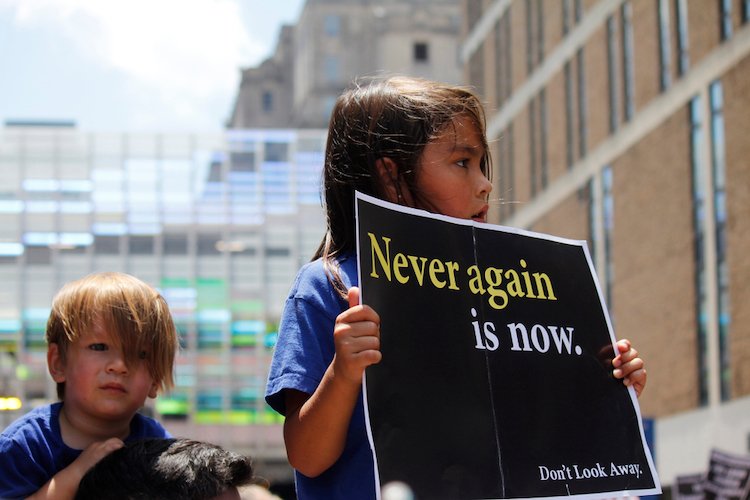A mom from Venezuela was attacked while protesting against the Maduro administration and has been waiting months in Mexico to get her US immigration case reviewed. Now, she has been granted permission to stay in the U.S., but that right was not extended to her three children, leading the family to wonder if and when they will be separated.
Lissette, 46, who opted not to share her full name for fear of retribution, applied for asylum in July, along with her three children, an 8-year-old boy and twin 4-year-old girls. Under the Trump administration’s regulation banning asylum to non-Mexicans attempting to come to the US through the Mexico border, the family was not granted asylum.
YOU MAY ALSO LIKE: Chrissy Teigen Shared Luna’s Adorable First-day-of-School Photos While Fighting a Twitter War With Donald Trump
Lisette, an immigrant mom, applied for asylum in July after she was attacked while protesting. The judge has ordered that the mom can stay in the US, but her three children cannot stay with her.

Instead, a judge gave her “withholding of removal,” which will not give her a means of getting U.S. citizenship, but will allow her to remain in the U.S. However, the judge ruled that only Lisette was at risk of persecution and not her children. As a result, the same protection was not granted to her children.
“Our biggest fear was the 8-year-old boy and twin 4-year-old girls would be sent back to Mexico alone,” Jorge Trevino, the family’s attorney, said.
On Friday, an immigrant advocate reached out to members of Congress in an attempt to keep the family together. The Immigrant Defenders Law Center also tweeted about the family’s potential separation to draw attention to their plight.
On Saturday, the children were united with their father, who is a permanent legal resident of the U.S., though they still have orders of removal from the country. In January, the children will have to check in with ICE.
“While what happened in this case was shocking in its absurdity and cruelty – it was not entirely surprising from a legal perspective,” said Taylor Levy, an immigration attorney based in El Paso, Texas. “Similar cases are likely.”